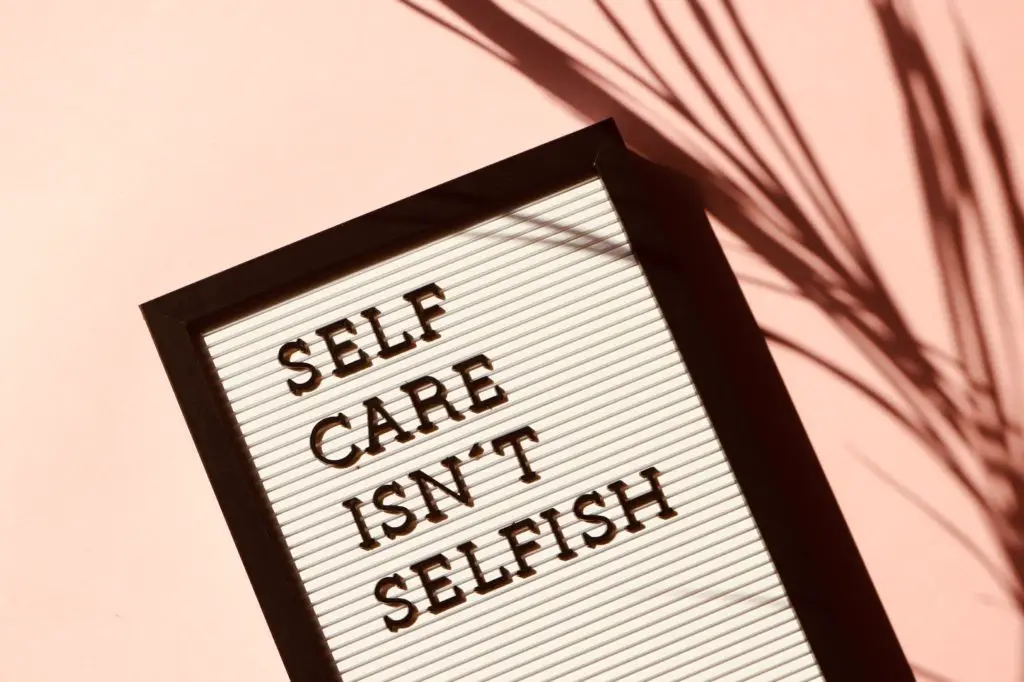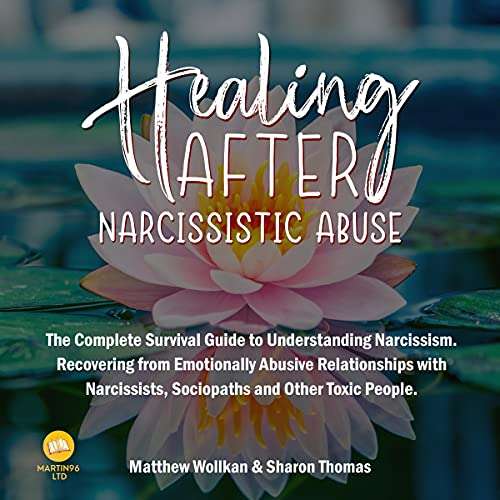Imagine walking through life with an invisible weight on your shoulders. That’s often the reality for victims of narcissistic abuse, a form of emotional and psychological manipulation that can leave deep, unseen scars. In this article, we’ll explore not only the challenges of such abuse but also the transformative power of therapy in finding your way back to a healthier, happier self. And guess what? You don’t have to break the bank to get there. I’ll share three affordable alternatives that have been game-changers for many.

Table of Contents
What Is Narcissistic Abuse?
Narcissistic abuse is a term that’s thrown around a lot, but what does it actually mean? Picture this: You’re in a relationship, whether it’s romantic, familial, or even professional, and the other person uses a cocktail of emotional manipulation, gaslighting, and belittling comments to control or diminish you. This type of abuse often comes from someone displaying narcissistic traits. It’s not just about someone being self-centered; it’s a systematic approach to undermining another person’s sense of self-worth. The scary part? It’s often so subtle that you might not even realize it’s happening until you’re deep in the thick of it. It’s like a slow-acting poison, eating away at your mental health without any visible wounds.
My Own Brush with Narcissism
Let me tell you a story about a friend of mine. Well, ‘friend’ is a term I used loosely here. This person was a master at making every conversation revolve around their achievements. At first, I thought they were just confident, but soon enough, I realized it was something darker. Every chat left me feeling smaller, like I was constantly being outshone. This is the essence of narcissistic abuse.
It’s not always loud and violent; sometimes, it’s this quiet chipping away at your confidence. It’s a series of subtle digs and self-centered conversations that leave you questioning your worth. And the worst part? It’s often done by someone you trust, making it harder to spot and even harder to escape.
The Impact on Victims: Psychological Toll
When we talk about the fallout from narcissistic abuse, we’re delving into some serious mental health territory. Victims often grapple with a heavy mix of anxiety, depression, and in some cases, even post-traumatic stress disorder (PTSD). This isn’t just feeling down because someone was mean to you; it’s a profound, deep-seated impact that can shake the very foundation of your mental wellbeing.
Imagine constantly questioning your reality, feeling worthless, or always being on edge – that’s the daily grind for many who’ve endured this abuse. It’s a tough battle, with wounds that are invisible but painfully real. Therapy, in this case, isn’t just helpful; it’s often a lifeline, providing a path to emotional abuse healing and reclaiming a sense of self that narcissistic abuse tries so hard to erode.
Why Specialized Therapy Matters
Here’s the thing about recovering from narcissistic abuse – standard, one-size-fits-all therapy might not cut it. This type of abuse is a unique beast, and it requires an equally unique approach. Why? Because we’re dealing with deeply ingrained patterns of manipulation and control that can alter a person’s perception of themselves and their relationships. This is where specialized therapy steps in. It’s like having a guide who knows the treacherous path you’ve been walking.
They get it. They know the specific challenges and mind games involved in narcissistic abuse, whether it’s in a romantic relationship, a family dynamic with a narcissistic parent, or even family therapy with a narcissist. This tailored approach goes beyond the basics, diving deep into your personal experiences, helping you unravel the complex web of emotions and rebuild your sense of self.
Breaking the Cycle: The Role of Therapy
Therapy isn’t just about talking over your problems; when it comes to narcissistic abuse, it’s a critical tool for breaking free from a vicious cycle. Think of it like a gym for your mental health – a place to strengthen your self-esteem muscles and learn how to set boundaries like a pro. It’s not just about healing from the past; it’s about arming yourself for the future. Therapy provides the tools and insights to understand the abuse’s impact, helps in emotional abuse healing, and teaches you how to not just survive but thrive. It’s about rewriting the script of your life where you’re no longer a victim but a survivor, taking back control and writing your own narrative.

Exploring Therapy Options: What Works and What Doesn’t
When it comes to therapy for narcissistic abuse, there’s no magic pill, no quick fix. But, some therapy types stand out for their effectiveness. Take cognitive-behavioral therapy (CBT), for instance. It’s like a detective and a coach rolled into one – helping you identify those twisted patterns of thought narcissistic abuse instills and coaching you to build healthier, more positive mental habits. It’s not about changing who you are; it’s about rediscovering who you were before the abuse. And let’s not forget about other approaches like EMDR or even specialized family therapy, particularly useful when dealing with a narcissistic parent or family therapy with a narcissist. It’s about finding what resonates with your story and your healing journey.
Free Recovery Programs: Accessibility Matters
Let’s face it, not everyone can afford a therapist on retainer. But that doesn’t mean therapy is out of reach. Free recovery programs can be absolute lifesavers, offering support, resources, and a community of people who ‘get it.’ While they might not dive as deep as one-on-one sessions with a therapist, they provide a space to start your healing journey. These programs often combine peer support with educational resources, making therapy accessible to everyone. They prove that getting help doesn’t have to be a financial burden and that everyone deserves a chance at recovery and healing from narcissistic abuse.
Affordable Alternative 1 – Online Therapy
Therapy in the Digital Age: Convenience and Comfort
Welcome to therapy in the 21st century! Online therapy platforms are changing the game, making mental health support more accessible than ever. Think about it – no more worrying about commuting or fitting appointments into your hectic schedule. You can have a session in your pajamas, from the comfort of your home. It’s like bringing the therapist’s office to you. And let’s talk about privacy. For those who’ve faced narcissistic abuse, the anonymity and discretion of online therapy can be a huge relief. It breaks down barriers, allowing more people to seek help, especially those who might be hesitant about traditional therapy settings. Online therapy isn’t just about convenience; it’s about opening doors to healing for everyone, everywhere.
A Personal Reflection: Finding Hope Online
Let me share a story about a close friend of mine. They were deep in the throes of recovering from a relationship marred by narcissistic abuse. Traditional therapy felt daunting to them, almost like another mountain to climb. But then they discovered online therapy. It was a game-changer. Being able to talk to a therapist from their safe space, their own home, made all the difference.
They found a sense of understanding and validation they hadn’t felt before. It was like watching someone find a lifeline in a sea of turmoil. This experience opened my eyes to the power of online therapy. It’s more than just a convenient alternative; it’s a gateway to recovery, offering a beacon of hope to those who might feel lost in the aftermath of narcissistic abuse.
Affordable Alternative 2 – Support Groups
Strength in Numbers: Shared Experiences
There’s something incredibly powerful about sitting in a room with people who just get it. That’s the magic of support groups for survivors of narcissistic abuse. It’s not just about venting (although that’s totally okay); it’s about building a community that understands exactly what you’ve been through. These groups provide a space where you can share your experiences without fear of judgment, learn from others, and realize you’re not alone. The shared experiences in these groups can be eye-opening and deeply healing.
They remind you that your struggles are valid, and there’s strength in numbers. Sometimes, just hearing someone else’s story that mirrors your own can be a turning point in your healing process, reinforcing the importance of therapy and support in tackling mental health challenges.
Community Resources: Beyond the Group Setting
But support doesn’t stop at group meetings. Many communities offer workshops, seminars, and other resources that can be goldmines of information and support. These local resources often bring in experts in mental health, family therapy, and specifically, therapy for narcissistic abuse. They provide strategies for dealing with a narcissistic parent or partner and offer insights into emotional abuse healing. Workshops and seminars can be especially helpful if you’re not quite ready for the commitment of regular therapy sessions. They offer bite-sized, practical advice and coping strategies that you can start using right away. Plus, they often connect you with additional resources, like books or online materials, to continue your learning and healing journey.
Affordable Alternative 3 – Self-Help Strategies
Empowering Yourself: Books and Online Resources
When it comes to healing from narcissistic abuse, never underestimate the power of a good book or online resource. Self-help materials can be fantastic supplements to therapy, providing insights and strategies you can use at your own pace. It’s about empowering yourself with knowledge – understanding the patterns of abuse, learning how to rebuild your self-esteem, and picking up techniques for setting boundaries.
These resources are often written by experts in mental health and therapy, giving you access to a wealth of knowledge at your fingertips. Plus, there’s something for everyone, whether you prefer a deep-dive book, an interactive online course, or even just following mental health influencers on social media. The key is to find resources that resonate with your experience and use them as tools to aid your journey to recovery.

Special Considerations
Therapy for Different Needs: Therapy for the Narcissist
When it comes to therapy for someone with narcissistic personality disorder (NPD), it’s a whole different ball game. It’s not just about dealing with the aftermath of abuse; it’s about addressing the core of the disorder. This often requires a specialized, long-term therapy approach. Why? Because NPD is complex and deeply rooted in a person’s psyche. Therapy in this case aims to help individuals understand and manage their condition, work on empathy development, and improve their relationships.
It’s a challenging journey, both for the therapist and the individual, often requiring a mix of cognitive-behavioral therapy, family therapy, and other modalities. While it’s a tough path, it’s not impossible. With commitment and the right therapeutic support, individuals with NPD can make significant strides in understanding and managing their behavior.
Detoxing from Narcissistic Abuse: Starting Fresh
Detoxing from narcissistic abuse isn’t just about putting physical space between you and the abuser. It’s a mental, emotional, and sometimes spiritual cleanse. It’s about shedding the toxic beliefs and patterns that the abuse ingrained in you and rebuilding your self-image from the ground up. This process is crucial for healing. Think of it as a reset button for your mental health. It involves relearning how to trust your judgment, valuing your self-worth, and setting healthy boundaries.
Therapy plays a key role in this detox process, offering guidance and support as you navigate the complexities of healing from such deep-rooted abuse. It’s a journey back to yourself, a process of rediscovery and reclaiming the life that narcissistic abuse tried to take from you.
Conclusion: A Path to Healing
Let’s be real – therapy for narcissistic abuse isn’t just about licking your wounds; it’s about embarking on a profound journey of self-discovery and reclaiming the life that was overshadowed by manipulation and control. It’s about learning to trust yourself again, rebuilding your self-esteem, and rediscovering joy. The good news? With the affordable alternatives we’ve explored – from online therapy and support groups to self-help resources – this journey is accessible to everyone.
Taking that first step towards therapy can feel daunting, like standing at the edge of a high dive. But remember, every journey starts with a single step, and this one leads to a destination worth reaching: a life where you are in control, where your mental health is a priority, and where happiness is not just a distant dream, but a real, tangible outcome.
References and Resources
To ensure you’re equipped with the best tools and knowledge for this journey, here are some resources that dive deeper into the world of therapy for narcissistic abuse:
- Online Therapy Platforms: A curated list of reputable online therapy platforms that offer flexibility and privacy, perfect for starting your therapy journey from the comfort of your home.
- Recommended Books and Resources: A collection of books, articles, and online materials that offer valuable strategies and insights into dealing with narcissistic abuse, emotional abuse healing, and rebuilding your life.

Healing After Narcissistic Abuse: The Complete Survival Guide to Understanding Narcissism. Recovering from Emotionally Abusive Relationships with Narcissists, Sociopaths and Other Toxic People.
These resources are here to guide you, offer support, and empower you with knowledge. Remember, you’re not alone on this journey. There are tools, people, and resources ready to help you heal and grow.
